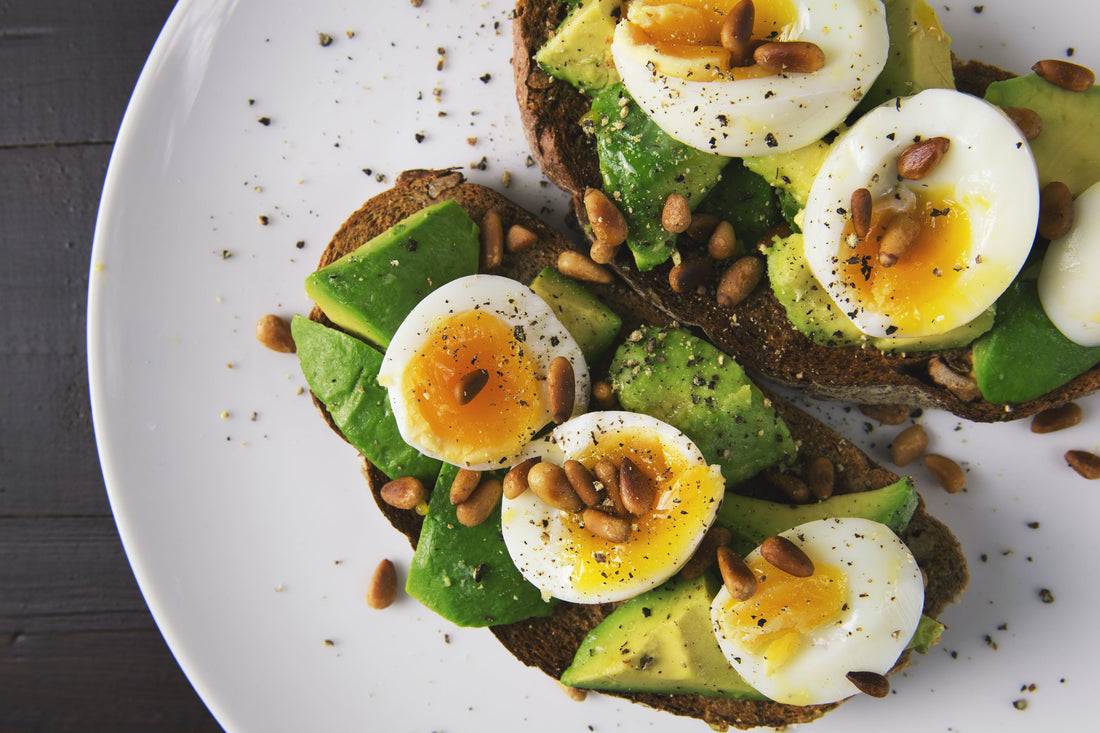
Share
Eat and Sleep - The short version. How diet influences our sleep.
Diet consciousness should be a priority in all aspects of health. Diet plays an important role in achieving restorative and efficient sleep cycles.
What’s at stake? Let’s start with what to cut down on.
A diet low in fiber and high in saturated fat and sugar will often reduce sleep quality and cause frequent awakenings. Vitamin and mineral deficiencies, such as B vitamins and magnesium, can also cause sleep problems. Overnutrition and obesity heighten the risk of conditions like obstructive sleep apnea (OSA) and restless legs syndrome.
Foods that are fatty, extra high in protein, spicy, or contain caffeine can disrupt sleep by causing indigestion or heartburn and by keeping the body too alert or too warm.
Alcohol can initially relax but will disturb sleep in the latter part of the night. High added sugar consumption increases the risk of insomnia, especially in women over 50, can disrupt deep sleep, raise inflammation, and exacerbate pain, creating a vicious cycle of poor sleep and diet choices.
Fatty meats such as pork, some red meats or processed meat products like bacon and sausages can increase inflammation and lead to increased mucus production, potentially compromising how you breathe at night.
Excessive fluid intake in the evening increases bathroom visits, disrupting sleep. Both spicy and fatty foods, particularly those containing saturated and trans fats, can cause sleep issues like insomnia and shortened total sleep time.
Okay.. Enough “donts” what about the “DO”.
Fortunately, there is more good news than bad when it comes to diet and sleep. There are more healthy choices available than unhealthy choices and making a few simple chances may significantly increase your overall health and your sleep quality.
Complex carbohydrates like oatmeal and whole-wheat toast that digest easily. Diets emphasising variety, like the Mediterranean or DASH diets, have been shown to support better sleep. These diets promote high fruit and vegetable intake and limit sugars and saturated fats.
Specific foods associated with better sleep include kiwi fruits, cherries, fish, nuts, pumpkin seeds, and certain herbal teas. They contain sleep-promoting compounds like melatonin, serotonin, and antioxidants. Complex carbohydrates from whole grains and some fruits also seem beneficial, contrasting with high-sugar and refined-grain products. Try to opt for quality multi-grain bread instead of highly processed.
A high-fiber diet abundant in fresh fruits, vegetables, whole grains, and low-fat proteins is optimal for sleep, along with foods high in B vitamins to help regulate melatonin. A nutritious diet helps weight control, which improves sleep and reduces the likelihood of fatigue, insomnia, snoring and sleep apnea.
Sleep deprivation influences food choices, leading to preferences for calorie-rich and sugary foods. To enhance sleep and diet:
- Limiting sugary foods as high sugar consumption is linked to chronic health issues and insomnia.
- Focus on shopping for whole-grain products, fresh or frozen fruit and vegetables, nuts and seeds and non processed meats.
- Reduce evening liquid intake to minimise nighttime awakenings.
- Avoid caffeine after noon to prevent sleep difficulties.
- Practise good sleep hygiene with consistent sleep routines and a comfortable sleep environment.
- Consult healthcare professionals for personalised diet and nutrition plans to address sleep concerns.
Maintaining a balanced diet, being strict about reducing intake of disruptive foods, and practising good sleep hygiene are key steps towards improving both diet quality and sleep patterns.
